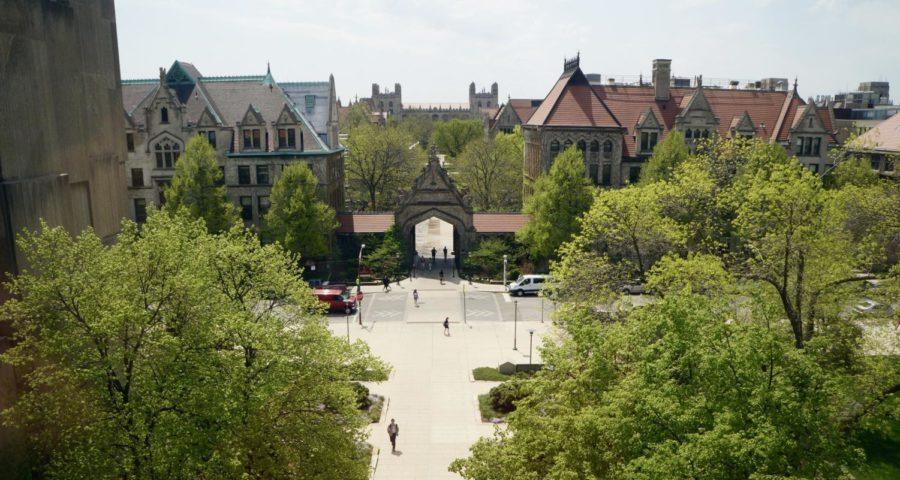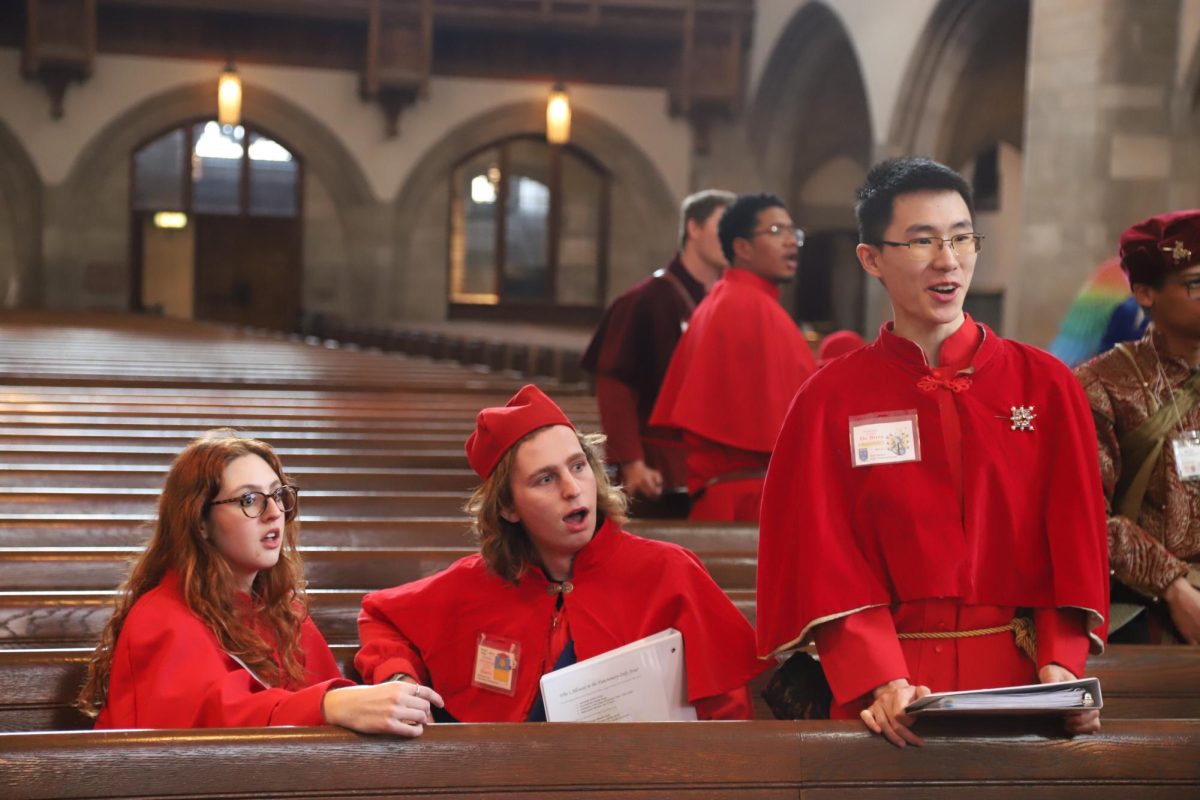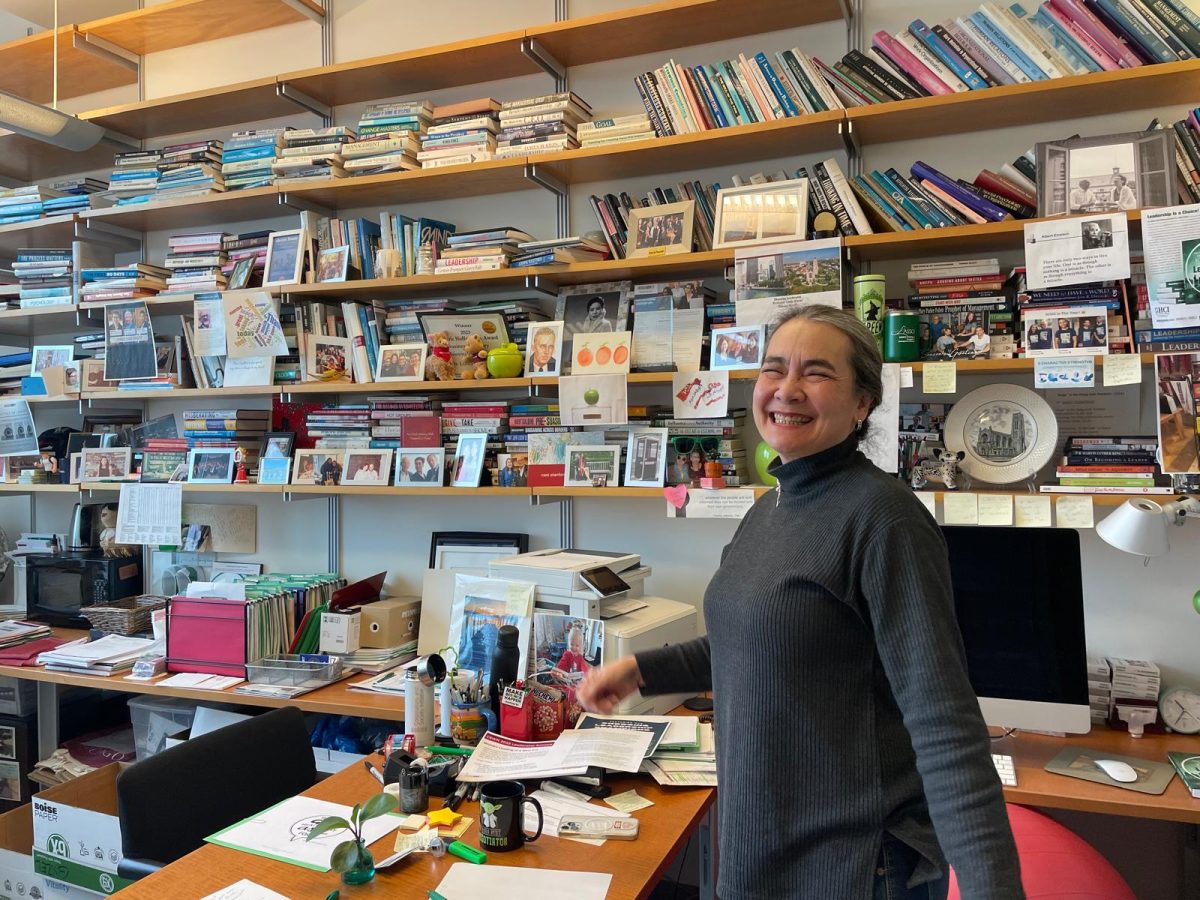An ongoing lawsuit filed in 2019 against the University of Chicago claims that “since 2014, UChicago has been served with more than six internal complaints of race, gender and/or religious discrimination in Facilities Services as well as multiple EEOC [Equal Employment Opportunity Commission] charges and a federal lawsuit. It has chosen to do nothing about it.”
The lawsuit is not the first to allege a hostile, discriminatory work environment within the Facilities Services (F.S.) Department at UChicago. Another suit, filed in 2017 and settled in 2018, made similar complaints about the same department. Both lawsuits accuse the University and various F.S. employees of multiple counts of race- or gender-based discrimination, and retaliation.
The most recent lawsuit claims that six employees have filed similar internal complaints with F.S. since 2014, five of whom The Maroon has identified.
University spokesperson Gerald McSwiggan declined to answer any specific questions about The Maroon’s investigation, writing in an email that, “diversity and inclusion is one of the core values of the University of Chicago, and the University is dedicated to ensuring that people from a variety of backgrounds and experiences can thrive on campus.”
"Unlawful race discrimination:" Olandreia Walton and Valerie RiChard
Facilities Services, the department responsible for the upkeep and maintenance of campus, is staffed with a local Human Resources (H.R.) representative who, according to the 2019 lawsuit, reports directly to the leadership of F.S.
The lawsuits describe a pattern that has outlasted one H.R. representative’s tenure; there are allegations of discrimination that name both Jay Chesslo, who held the position until 2014, and his successor, Adrian Velez.
Chesslo was the Senior Human Resources Manager for the first two of the five complaints that The Maroon was able to identify: those of Senior Facilities Manager Olandreia Walton, a Black woman who went on to file the 2017 lawsuit, and her former coworker, Director of Maintenance Valerie RiChard.
According to Walton’s 2017 lawsuit, both women made “very similar” complaints of race and sex-based discrimination to the University’s local H.R. department.
Walton declined to comment, and The Maroon was unable to reach RiChard for comment.
According to the lawsuit, one thing became immediately clear to Walton when she began her employment in 2013: that “Caucasian men she worked with were treating her differently because she is an African-American woman.”
The suit discusses how, within Facilities Services, her white male coworkers “ignored her, they excluded her from business communications, and they were openly hostile toward her, all of which made her job much more difficult.” It adds that Walton had never encountered this kind of conduct elsewhere in her career. She singled out a Director within F.S., Kevin Austin, as the main instigator of this behavior.
This behavior is also documented in Spencer’s lawsuit: it was so “extreme” and “public” that Spencer noticed it, having just started working at the office, the 2019 lawsuit says.
Austin, who is a current UChicago employee, declined to speak with The Maroon.
According to the 2017 lawsuit, Walton repeatedly complained of a hostile work environment to Chesslo and her supervisor, Assistant Vice-President for Facilities Services Joel Schriever, to no avail. This was first due to the alleged behavior of Kevin Austin and later because of a letter of performance deficiency Walton claims was unjust and inaccurate.
Chesslo opted not to initiate an H.R. investigation, the lawsuit narrates, despite the fact that “one of Ms. Walton’s African-American female colleagues [the former Director of Maintenance, Valerie RiChard] had previously complained to central Human Resources about the race and sex discrimination she was experiencing.”
Walton decided that she wanted her complaints investigated by UChicago’s central Human Resources department rather than the local H.R. representative. According to the lawsuit, she made her request one morning in July of 2014, and Chesslo said he would take it up with department leadership.
Later that same day, the lawsuit narrates, Chesslo and Schriever called Walton into a meeting; they informed her that her employment was terminated, effective immediately.
The lawsuit claims that UChicago did not investigate Walton’s complaints after she left. The University did not respond to questions about this allegation.
When reached for comment, all of the defendants named in Walton’s lawsuit either declined to comment or did not respond.
“I waited, nothing happened”: Janet Spencer
Adrian Velez replaced Chesslo as the department’s H.R. representative in 2014. He was the point of contact within H.R. for two other complainants that The Maroon was able to identify: Janet Spencer and Sara Popenhagen, the two plaintiffs on the 2019 lawsuit.
Janet Spencer told The Maroon that her experience with H.R., like Walton’s, was largely characterized by inaction; she made complaints, repeatedly, and felt that no resources were mobilized in her defense.
“I reported my harassment over and over,” Spencer said. “I went to internal H.R.; I waited, nothing happened. Then I went to central H.R.; I waited, nothing happened.”
In October of 2013, Spencer was hired as a Maintenance Program Manager. When Austin was promoted the following year, “Austin began harassing Ms. Spencer in exactly the same way he had previously harassed Olandreia Walton,” the lawsuit says. “He stopped speaking to her, he interrupted and spoke over her at meetings, he disparaged her around the office and he undermined her to her subordinates.”
As the behavior continued, Spencer sent a letter to Austin’s superior, Gerry McGillian, alleging a hostile work environment in February of 2016. McGillian did not respond to the letter, the lawsuit says, nor did he forward the letter to his superiors or to H.R.
The lawsuit also claims that while Spencer was working under McGillian, from 2014–17, her workload increased while her annual pay raise decreased from 2.5 percent to 2 percent to 1 percent. The number of staff members reporting to her also decreased from five to zero employees over this span of three years.
According to the lawsuit, Spencer complained to both UChicago’s central H.R. department and to Adrian Velez, the H.R. representative within F.S., who both dismissed her allegations.
Following repeated attempts to work with H.R., her lawsuit reads, Ms. Spencer “recognized the futility of continuing to remain in her job when UChicago had repeatedly been apprised of the discrimination and harassment yet had chosen to do nothing about it.” Spencer left the job on November 30, 2017, claiming that it was a constructive discharge: a form of contract termination in which a hostile work environment effectively coerced an employee into leaving.
Spencer described how, like Walton, the work environment at UChicago was unlike any past experience in her career. She worked for over 35 years in similar positions at the University of Illinois at Urbana-Champaign, where she estimated that 95 percent of the 1300 employees in her department were men, but found the work environment vastly different.
“My whole career I’ve spent in a male-dominated field and have had no problems whatsoever,” she said. “I was always treated with respect, and I never filed a complaint or even visited H.R. about any behavior. When people did behave poorly, they were reprimanded, and it immediately stopped—which is not the case at all at the University of Chicago.”
Another former employee in F.S., who spoke with The Maroon on the condition of anonymity, said that Spencer’s complaints about H.R. rang true.
“H.R. was concerned only with protecting management and the University,” the employee said. “It was almost purposefully ineffective…. They were interested in making sure that people at a certain level and higher were not to be questioned nor bothered with any issues whatsoever.”
The lawsuit also alleges that F.S. has faced multiple EEOC charges. The Maroon was unable to confirm or deny the existence of such charges, as the results of such an investigation would only be available to the University, who declined to answer questions, and the aggrieved party, whose identity is unknown.
When reached for comment, all of the defendants named in the 2019 lawsuit either declined to comment or did not respond.
A “Good Ol' Boys Club”: Sara Popenhagen
The second plaintiff in the 2019 lawsuit is Sara Popenhagen, the current Sustainability Specialist at UChicago. Her attorney, Johanna Raimond, declined The Maroon’s request to interview Popenhagen.
Popenhagen’s allegations center around the disparity of pay and job opportunities between men and women within F.S. The lawsuit claims that when she and a male colleague both requested promotions or pay increases when their workload increased, her male colleague was given a promotion, but she was not—despite the fact that her direct supervisor had also advocated in her favor.
The lawsuit alleges that the former Assistant Vice President for Facilities Operations Gerry McGillian often invoked concern for how “the guys” in the department would react to her holding a higher position than them. He offered this as a justification several times, including when he initially denied her a pay raise and promotion, as well as when he eventually agreed to give her this pay raise, though he still denied her request to make the promotion retroactive.
Popenhagen then reported to H.R. that she was experiencing discrimination — first in May 2017 and then again in April 2018—at which point the promotion and pay raise she was promised were revoked, the lawsuit says. “It was not until three months later, on June 29, 2018, and within a few hours of UChicago receiving a letter from Ms. Popenhagen’s lawyer threatening legal action, that UChicago agreed to honor the previously promised promotion to manager and pay increase.”
The lawsuit also argues that Popenhagen was promised, and then denied, the opportunity to attend a professional development program, the “Chicago Booth’s Emerging Leaders program” at the Booth School of Business.
The combined effect of this has been to create what Spencer called a “good ol’ boys club:” “an organization that hires and promotes almost exclusively white, Christian men,” and in which “women, non-Christians and employees of color are harassed, paid less, passed over for promotion or fired.” In an interview with The Maroon, Johanna Raimond, Spencer and Popenhagen’s lawyer in the 2019 suit, described this as a continual cycle of displacement.
“Every time a woman and minority gets pushed out [under] the regime of McGillian and McConnell [the head of F.S.]…they install a white male in their place,” she said.
Spencer said that there were several employees who “weren’t minorities” and “weren’t female” who acknowledged that this discrimination was taking place. One of these employees was her supervisor, Sumit Ray, who declined to speak to The Maroon.
However, not everyone in the department was aware of or acknowledged such discrimination. When reached for comment, one employee who worked at F.S. during this time could not confirm any such conduct.
Ignacio Tagtachian, a former employee who worked in the Sustainability Office until 2014, told The Maroon that “in terms of generally acknowledged discrimination, all I can say is that I did not witness it. The Sustainability Office was always a bit separated from the rest of Facilities, so it is hard for me to say.”
Another employee, who spoke with The Maroon on the condition of anonymity, was surprised by the allegations against Austin, saying that “I’ve always seen him to be nothing but very professional.”
The discrimination alleged within F.S. was not limited to the workplaces of the four aforementioned complainants: there are also allegations of discrimination within the Central Utility Plant (CUP), a branch of F.S. located in a different building from the rest of the department.
“H.R. is not your friend”: Benjamin Ashkenazi
Velez was also the H.R. point of contact for Benjamin Ashkenazi, the fifth complainant that The Maroon has identified.
Ashkenazi, who is Jewish, said he experienced anti-Semitic behavior while working as an engineer in the CUP, but he did not bring his complaint to H.R. for fear of retaliation by his coworkers. “I knew if I said anything, my career was over,” he told The Maroon in an interview. It wasn’t until 2015 when Ashkenazi decided to quit his job and move to Israel—in part because of the way he was treated at UChicago—that he complained to Velez via email.
This email, obtained by The Maroon, outlines a pattern of anti-Semitic comments within the CUP. The email alleges that when Ashkenazi got a promotion and raise, his supervisor Mike DeSoto told him to “live like a Jew,” not knowing that Ashkenazi, whose legal name was then Allen Langlois, was Jewish.
“He told me to live like a Jew because they are ‘cheap’ and that's why ‘they have lots of money’ among other extremely unsettling things,” Ashkenazi's email to Velez reads. “The story was extremely antisemitic and I was relieved he didn't know I was Jewish.”
Ashkenazi wrote that DeSoto, who declined to speak with The Maroon, “bragged about” this exchange to another CUP employee, Fred Fuller, shortly after it occurred. Fuller confirmed this account in an interview with The Maroon.
Furthermore, Ashkenazi complains that he was repeatedly given menial jobs such as taking out the trash and changing the light bulbs, despite having 10 years of experience at the CUP and several technical certifications. Ashkenazi claims that supervisors opted to give the more challenging work to less qualified individuals, who subsequently had to be trained, rather than give it to him.
When Ashkenazi emailed Velez detailing his complaint, he provided Fuller’s contact information, saying that “if you are serious about conducting an investigation Fred Fuller would be a good place to start,” and that “[Fuller has] been wanting to blow the whistle for years but didn't because he felt it would make the situation worse.” Fuller told The Maroon that no one from H.R. ever contacted him on the matter.
In addition to his formal complaint, Ashkenazi gave his supervisors, Mike DeSoto and Dan Kerry, “exceptionally low reviews.”
Fuller also agreed with Ashkenazi's broader diagnoses of a problematic environment. Asked whether he observed an anti-Semitic and toxic work environment within the CUP, Fuller responded, “Absolutely.”
Ashkenazi believes that Facilities Services’ H.R. department plays a role in perpetuating the problematic workplace environments.
“There's no corrective mechanism,” he said. “That’s the problem. You go to H.R. and you complain; nothing changes.”
Ashkenazi was adamant that the complaints within F.S. point to a systemic issue within the department.
“If there wasn’t something that was going on, why would you hear all of these people say this?” said Ashkenazi.
“It’s not all disgruntled employees. I left, and then I said it [reported discrimination],” he said. “You can see, I’m not getting anything out of it. I’m not trying to sue the University. I’m not trying to get any money out of it. I’m just saying this behavior is wrong and it needs to be addressed.”








